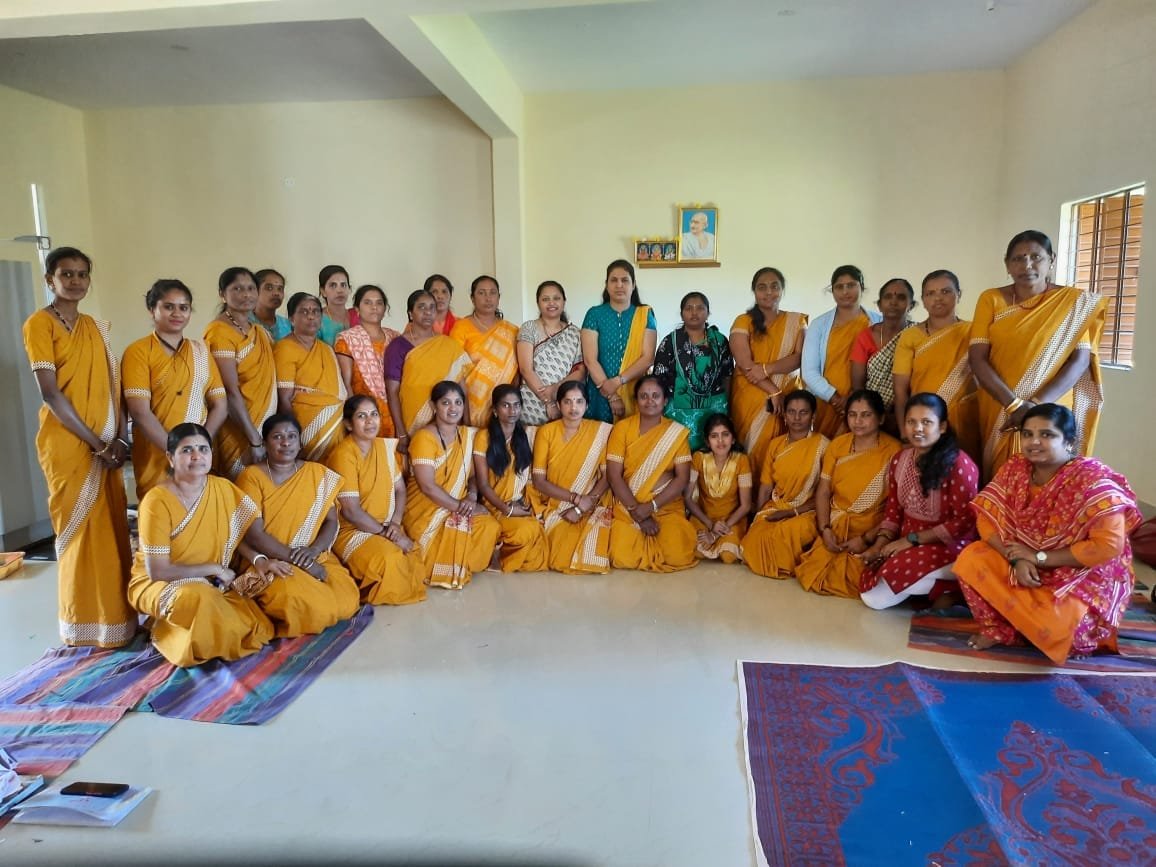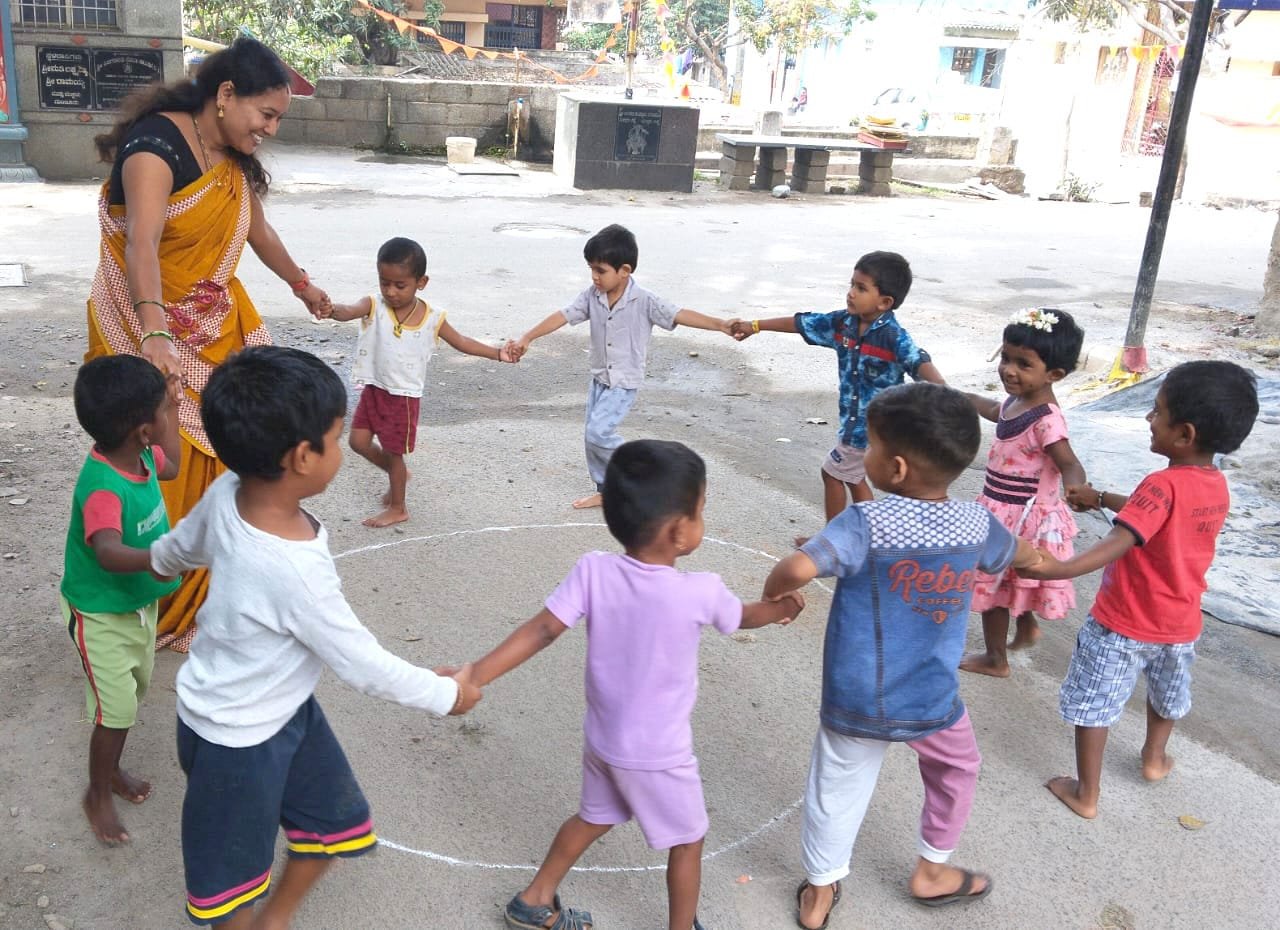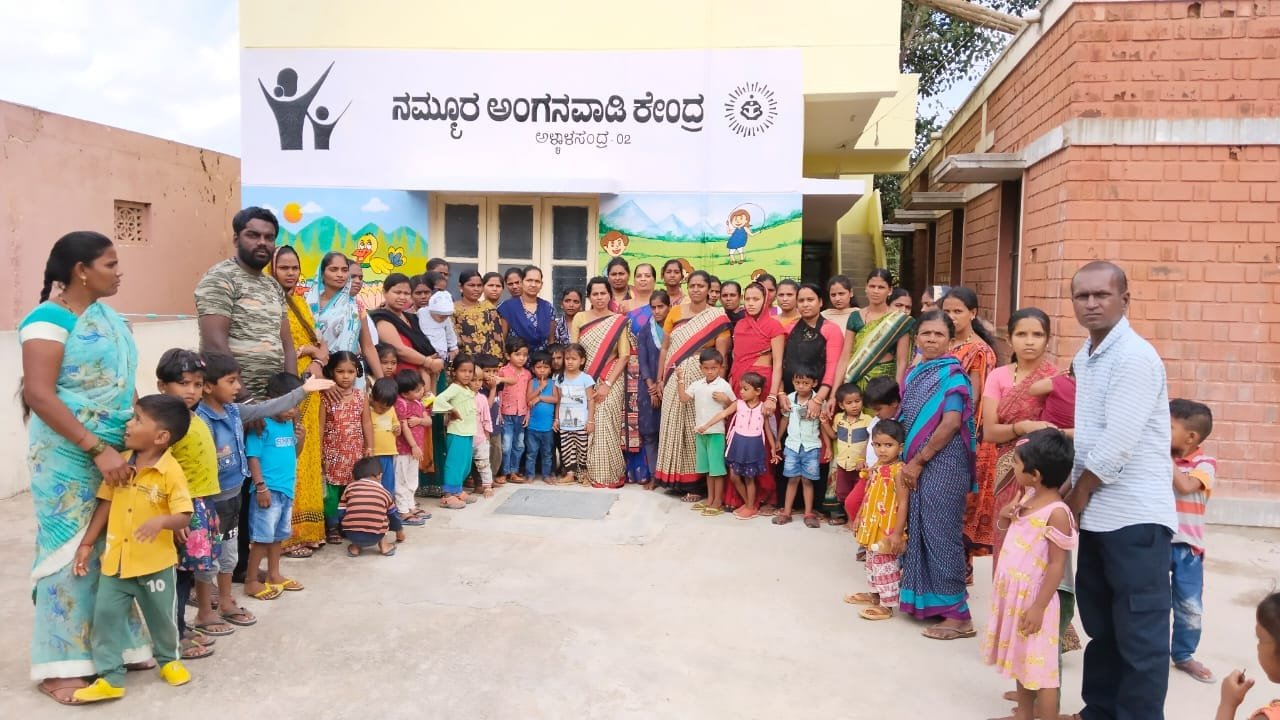OUR WORK
Early Childhood Care and Education: Transforming Anganwadis
In India, we have the Anganwadi centers, established by the Government in 1975 as part of the Integrated Child Development Services program. These centers serve as nurturing spaces for children aged 0 to 6, addressing their fundamental needs, including healthcare, nutrition, education, and preschool activities. We firmly believe that a well-functioning Anganwadi has the power to shape a child’s destiny, fostering lifelong development in a positive manner.
To unlock the full potential of every child, we recognize the need for Anganwadis to create a stimulating and enriching environment, focusing on the child’s holistic development. Unfortunately, the lack of quality training for teachers, coupled with their burden of other health-related responsibilities, hinders the delivery of quality care and learning in these centers.
Read More
Through our innovative program, we equip Anganwadi workers with the necessary skills and empower communities to play an active role in transforming Anganwadis into holistic development centers. By building the capabilities of local communities and enhancing the agency of the Anganwadi workers, we ensure that every child receives the attention they deserve, paving the way for their holistic growth.


Capacity-building for teachers
Monthly collective meetings are held for anganwadi workers, providing a space to share experiences and overcome obstacles hindering children’s learning. Training covers pedagogy, specific skills for ages 3-6, and concludes with monthly planning and materials development. Method of training is very participatory, experiential & based on a shared thinking towards a collective vision. Sharing of experiences form a a large part of the capacity building meetings.
The trainings also support the development of teachers’ capabilities to plan, present these concepts to the children and to conduct activities for each of the concepts that have been identified. They also learn elaboration of a concept, identification of learning outcomes from the concept, preparation of material in accordance to requirements etc.

Classroom transactions and management
Children are natural learners and early childhood is the time in which they are learning at a very fast pace. All children learn through different learning styles and play has an important role to play in the process. Prajayatna has adopted an experiential and play-based approach that is centered around themes. It is ensured that children learn through active involvement with concrete objects. As they learn using their senses and have different preferences of learning styles, all learning objectives are addressed through activities catering to all senses. Therefore, every theme and skill aspect addressed in the curriculum is presented through activities for all the modalities- visual, auditory, kinesthetic/ movement and tactile/ touch. One of the primary objectives of the ECCE program is to provide a stimulating environment for qualitative learning in the early years within the Anganwadi. Therefore care is taken to provide a non-threatening, warm and stimulating environment for the children, where they can grow and learn.

Community engagement
Parents meetings and workshops: Prajayatna conducts parent meetings at the AWCs periodically. The purpose behind these meetings is to actively and consciously involve the parents in child care and early education. The focus remains on discussions with parents on the areas of intervention that can be conducted at home in the areas of- health and nutrition; immunisation; early learning etc. .
Institution capability building of the Parents Committee: Regular workshops empower Parents Committees to plan, implement, and review Centre activities. This enables the community to develop its own perspective about early child care and education, the objectives behind establishment of the Anganwadis, identifying the issues in the Centre, taking responsibility for solving the identified issues, preparation and implementation of the action plan.

Capacity-building for Department functionaries
Monthly meetings with Supervisors: Supervisors, who now focus on data collection and scheme implementation, have their roles redefined. These meetings, initially conducted by Prajayatna, aim to enhance supervisors’ understanding, review plan implementation, and develop their capabilities to support teachers. Skills and content are provided to facilitate teachers’ monthly meetings.
Block-level processes support supervisors in understanding and changing the overall perspective of the Centres.
